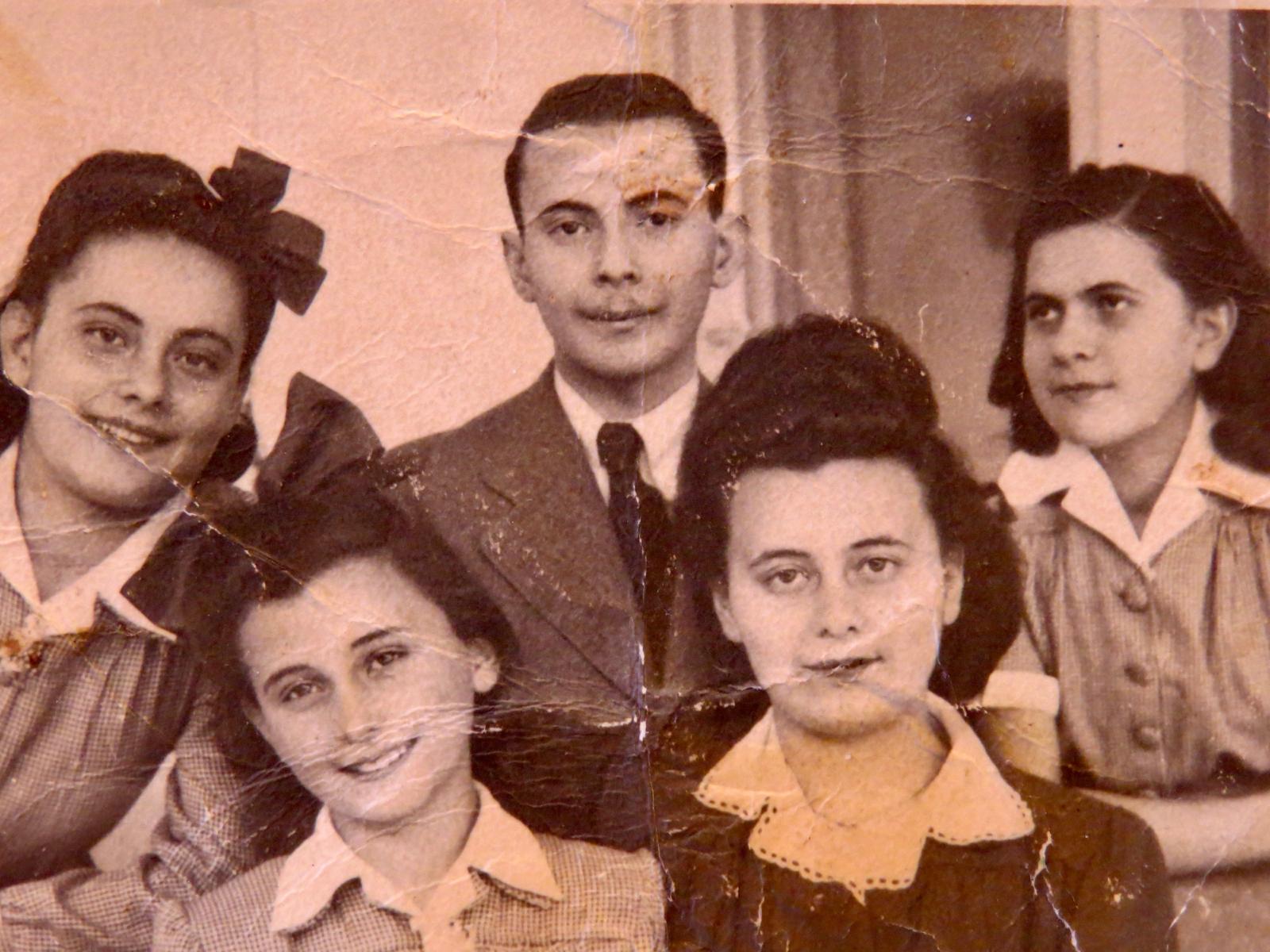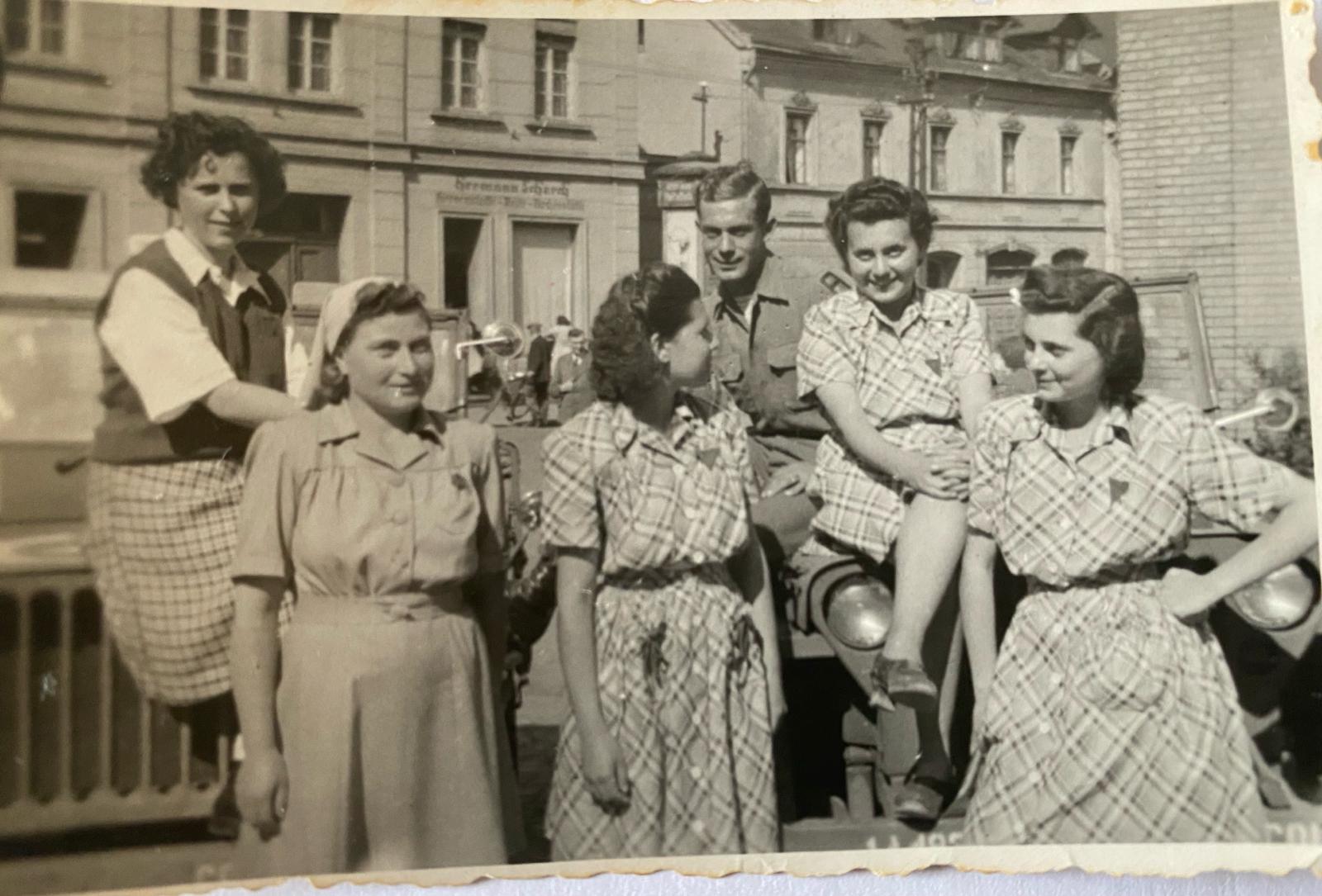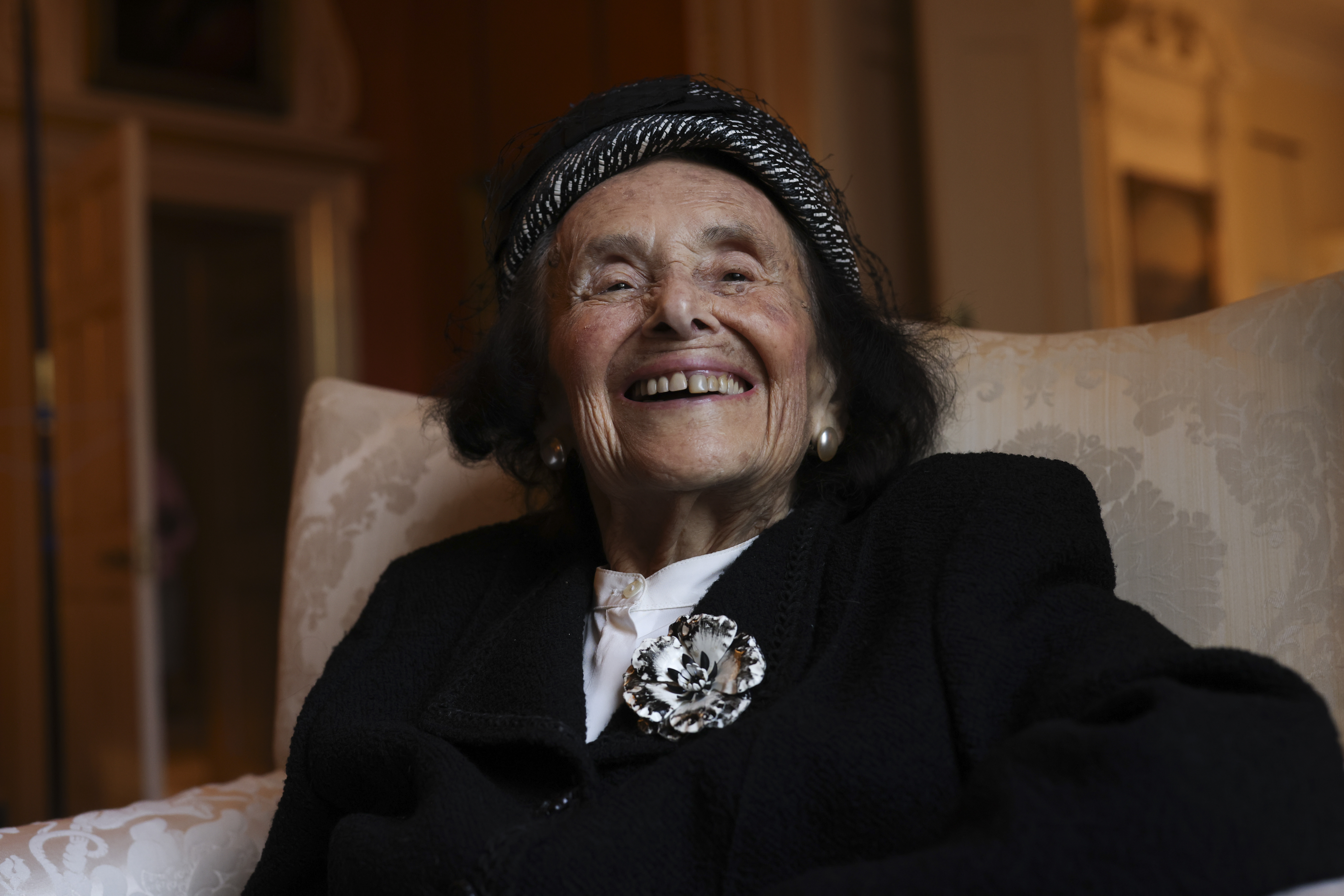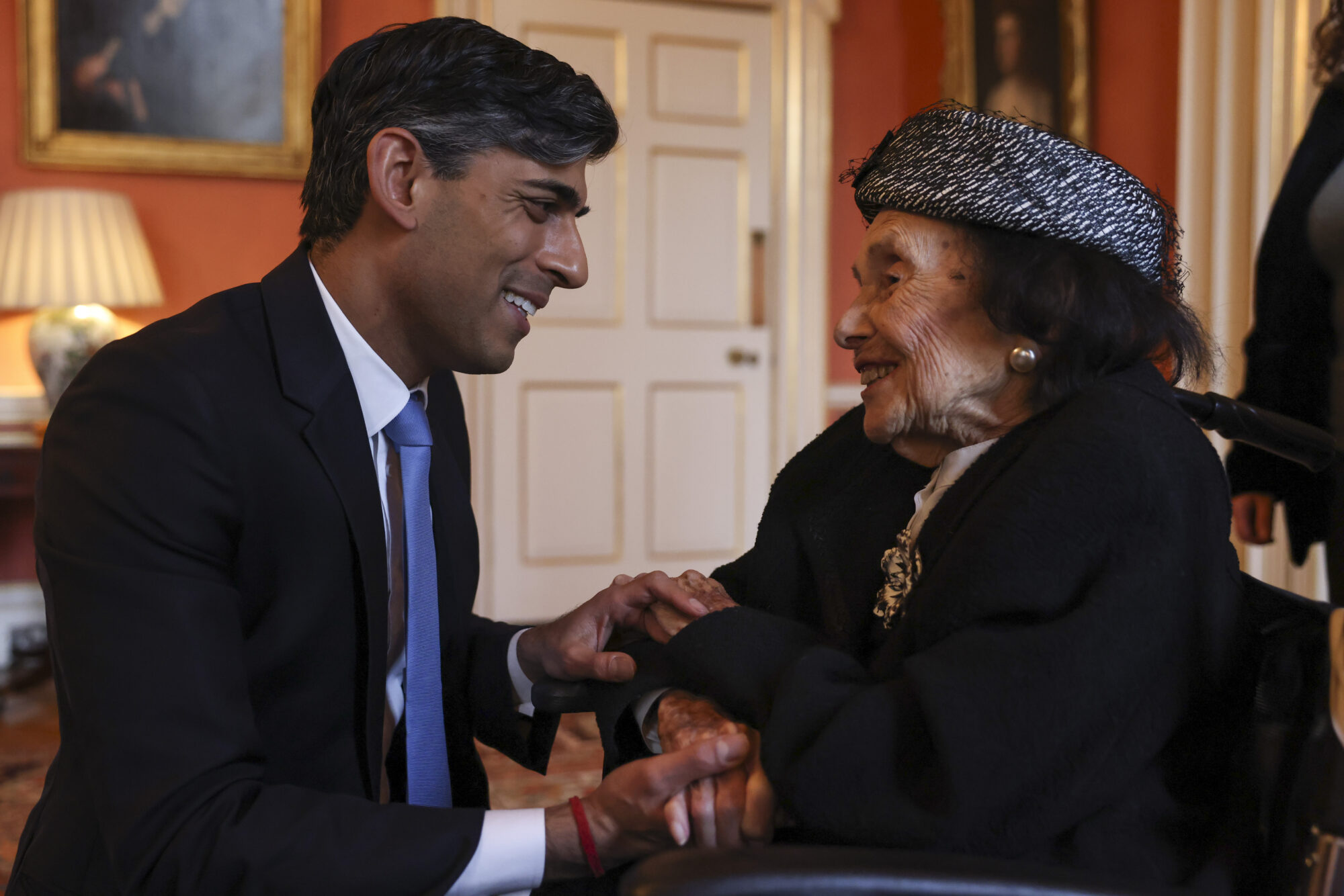Lily Ebert’s story
My first memorable Passover Seder must have been in April 1928.
I was four years old and the only child in the household old enough to stay up late. I loved nothing better than being with adults – and as the eldest of six, I always acted more grown up than I was.
Everything was laid out beautifully – all the candles lit. I was so proud to say the first sentence, the Ma Nishtana, asking my father the question clearly and loudly, just as I’d practiced: “Why is this night different from all other nights?”
Everyone in our community looked forward eagerly to every Yom Tov, each religious holiday. In Bonyhád, the small, busy market town in south-western Hungary where I was born in 1923, about one in eight was Jewish.

I remember only harmony in our home. Yes – with six children making mischief there was a lot of noise – but it was always peaceful. We were protected from the evils of the world. I’m not sure we even knew there was such a thing as antisemitism when we were very young.
My father must have known all about the new laws controlling Jews in Hungary. But he kept that knowledge from his children, maybe even from his wife.
The Kingdom of Hungary was moving ever closer to Nazi Germany, and after Hitler’s takeover of Austria in 1938, a series of laws and decrees were passed that stopped us from being equal citizens in our country. Being Jewish became a racial matter, not a religious one.
I felt uneasy about the news that Germany had invaded Poland in 1939, knowing that something terrible was happening somewhere. But we continued as normal – all the darkness far removed from our everyday lives.
That year we noticed some unsettling changes. A new girl suddenly arrived at school, having come from Czechoslovakia without her family to keep her safe. My father began to look very sad and serious when he read the newspaper.
When the German army took over Budapest on 19 March 1944, we felt our freedom slipping away.
It started with a curfew. We couldn’t leave our house between six in the evening and seven the next morning. We couldn’t leave Bonyhád at all. All Jewish shops had to be marked with a big yellow Star of David, and soon we were sewing yellow stars onto our clothing.
My brother and sisters started to hear the word yidlach at school. Yids.
As congregation leaders were forced to list every Jew in Bonyhád, some families began thinking ahead, giving a few possessions to their Christian friends for safekeeping until the crisis passed.

When the order came to leave our house for the ghetto, we had maybe an hour’s notice. There was fear, of course, but not much panic, because we understood so little of what was happening.
The lower ghetto was created in the poor, run-down quarter right next to our synagogue. Over 700 friends and family and neighbours were crammed into one narrow street.
Soon after arriving I was sent away again, to a farm called Juhe-Manor, where I would spend 12 hours a day weeding the fields – filling labour shortages caused by the war.
Weeks passed, and by the time I returned to the ghetto, it had been reduced to women, infants and the elderly.
I was still washing off the dust and dirt of the field when the order came to pack up again. Rumours quickly spread from building to building, room to room, but nobody knew anything for certain.

Our first train journey was only forty kilometers, but it took all night. We arrived at a kind of transit camp, already heaving with thousands of people. They made us see ourselves as we were – wretched and ever more degraded, sleeping on straw in filthy stables, like animals instead of human beings.
When the guards told us that the young people would work and the old people would stay at home and look after the children, we believed their lies. But with every change in our situation, the pretence slipped a little further, and it became less and less worth hiding what lay ahead.
We were loaded onto goods wagons, windowless, dark, high, with sliding doors and padlocks. There was no air to breathe. Just bodies, fearful, horrified, unwashed bodies, pressed relentlessly into a space that could not contain them.
Of course, people died. The heat was suffocating. There was so little to drink. Dry lips. Dry throats. People were sickening and ill before the journey started. We were locked in with corpses, a few more each day.
I think by this point we already envied the dead. How could dying be worse than living on this journey?
At some point we must have crossed the border into occupied Poland.
I didn’t know then that our transport, that stinking train from Pécs, was one of the very last to enter Auschwitz carrying Hungarian Jews.
I didn’t know that on 7 July, while we were slowly travelling towards occupied Poland, Miklós Horthy, Hungary’s ruler, finally ordered a halt to the deportations. By then, only Budapest was left to be emptied.

I didn’t know that the stench was burning flesh and bones. And really it was a factory. An extermination factory, in which they always wanted to be ever more efficient, to kill more people in less time.
We had arrived in hell, to be greeted by the Angel of Death. The man who decided so casually whether we would live, or die was Josef Mengele, the most notorious of all the doctors who worked at the camp.
These doctors stood on the platform called the Ramp, and made the first of the many, many selections my sisters and I would endure.
This is what shocks me. It was doctors, trained physicians, highly educated and cultured men, who could have used their education and experience and knowledge to save people’s lives but instead made the decision whether any one of us would walk straight into a gas chamber and die the moment we arrived and be burned.
Or if we would instead become slave labourers, face the ordeal of multiple selections, and die more slowly from starvation, thirst, exhaustion, disease, overwork, suicide, violence, cold.
Or, in rare cases, like my own, live to tell their story.
Lily Ebert MBE is a Holocaust survivor who shares her testimony on behalf of the Holocaust Educational Trust. You can find out more at www.het.org.uk.
